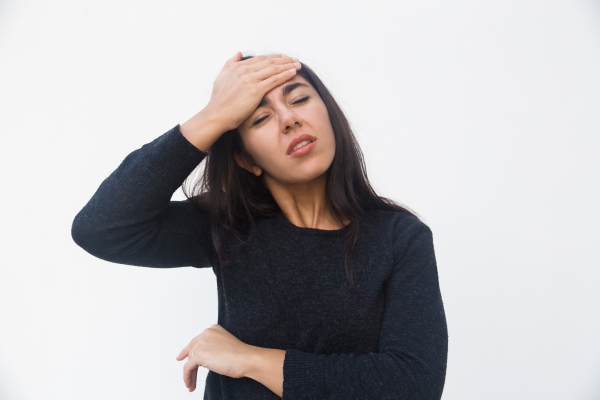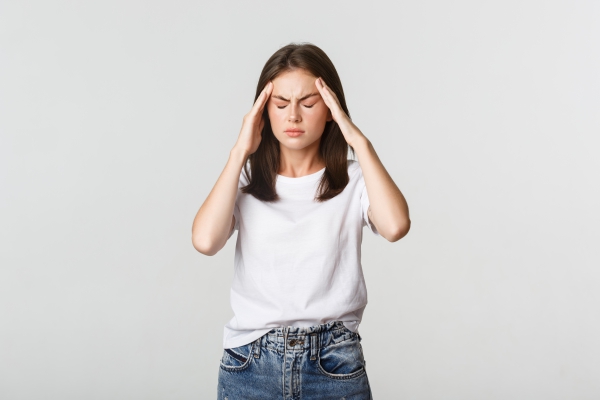What is Meniere’s disease?
Meniere’s disease also known as idiopathic endolymphatic hydrops is a disorder of the inner ear. It occurs when there is an excess pressure in the part of the inner ear that contains a fluid called endolymph. This can lead to several symptoms including hearing loss, spinning sensation and ringing sound in the ear.
In the United States, approximately 1000 people per 100,000 population has Meniere’s disease. It can occur at any age but is most commonly seen among people aged between 40 to 60 years. It appears to be more common in women compared to men.
Meniere’s disease is a chronic condition which can significantly impair your daily life due to the unpredictable nature of the spinning episodes. However, various treatment options are available to improve your quality of life.
Causes of Meniere’s disease
The cause of Meniere’s disease is unknown. If a cause is identified, the condition is no longer referred to as Meniere’s disease. Therefore, it is important to rule out other diseases that can cause an increased pressure in the inner ear.
Some other causes of elevated inner ear pressure include metabolic disturbances, hormonal imbalance, trauma and infections. Autoimmune diseases, such as lupus and rheumatoid arthritis, can also lead to an increased inner ear pressure due to inflammation of the structures containing endolymph.

Risk factors
Despite having an unknown cause, some factors can contribute or put your more at risk of having the disease, including:
- Family history of Meniere’s disease: If you have a close family member with the disease, you may also be at risk of having it at some point in your life.
- Pre-existing autoimmune diseases: Some studies have shown that your body’s own immune response may contribute to the development of Meniere’s disease.
- Allergies: Certain allergies to food products, dust or pollen can trigger the episodes or aggravate them.
- Trauma to the head or ear: This may cause injury or inflammation in the inner ear structures that can result in a disturbance in the fluid pressure in the ear.
- Infections: Infections, such as syphilis, can trigger Meniere’s disease attacks.
Sign and symptoms of Meniere’s disease
Meniere’s disease manifests as attacks of impairing symptoms which can occur at any time and recurs. In between episodes, you will be completely symptom free. The attacks may be linked to specific food triggers, stresses or the menstrual cycle. The signs and symptoms include:
- Vertigo – Spinning sensation that may last for several minutes
- Unsteadiness
- Nausea
- Vomiting
- Falls without loss of consciousness
- Hearing loss which may deteriorate with time
- Tinnitus which is a ringing or whistling sound in the ear. It can be continuous or intermittent.
- Nystagmus which is an abnormal movement of the eye

The above symptoms can cause significant distress and functional impairment. If you experience the above symptoms, you should seek medical help for further evaluation.

Making a diagnosis
After taking a detailed history from you, your doctor will examine you. What he/she will find on examination will depend on the phase of the disease. If it is done in between episodes, the examination may be without any abnormalities. If it is performed during an acute attack, your doctor will find you in significant distress which may be accompanied by pallor and sweating a lot. You may also have an elevated blood pressure and breathing rate.
Your doctor will also examine your ear using a special instrument called an otoscope. He/she will also ask you to perform specific manoeuvres to check for your level of stability. Further examination may be required to rule out the other medical conditions that can mimic Meniere’s disease.
Your doctor may also perform special tests such as the Dix-Hallpike positional test to look for any other coexisting conditions that may lead to vertigo such as benign paroxysmal positional vertigo.

Other tests may be performed to aid in the diagnosis including:
- Laboratory tests: There are no specific blood test to diagnose Meniere’s disease. However, some blood tests may be done to rule out any metabolic disorders, infections or hormonal imbalance that may be the root of the symptoms. These tests include: thyroid function tests, blood sugar levels, inflammatory markers, urine tests, blood electrolytes and allergy tests.
- Magnetic resonance imaging (MRI) or computed tomography (CT) scan: These imaging modalities are not usually required in the classic presentation of Meniere’s disease. However, they may be useful in looking for anatomical abnormalities or lesions that may be mimicking the condition.
- Audiometry: This is a test used to assess hearing. It is specifically used to check for any changes in hearing for particular sound intensities and pitch. During this test, you will be wearing headphones or earplugs that will be connected to a special apparatus that will be sending different volumes and pitches of sounds in each ear. You will have to either raise your hand or press a button each time you are able to hear the sound.
- Electrocochleography: This is a test that measures the electrical activity that occurs with respect to sounds. It also shows whether there is too much liquid in your inner ear. It is a painless procedure in which electrodes will be inserted carefully in your ear. These electrodes are connected to a monitor while sounds are delivered in your ear. The electrical response of your inner ear to those sounds are then recorded on the monitor.
- Electronystagmography: This test is used to check for your inner ear’s response to movement. It enables the evaluation of any involuntary abnormal eye movements, known as nystagmus, following stimulation of the inner ear. This can then be interpreted to know how well specific nerves in your brain are functioning. In this procedure, electrodes are placed on each side of your eyes and on your forehead. Your doctor will then stimulate your inner ear using warm and cool air or water.

Treatment of Meniere’s disease
The main goal of treatment is to relieve symptoms during the attacks as well as prevention of further episodes. Treatment options include:
- Vestibulosuppressants: These medications decrease the symptoms of vertigo by decreasing the brain’s response to the signals coming from the inner ear. Some examples include meclizine, droperidol, prochlorperazine, diazepam and lorazepam.
- Diuretics: Diuretics help by decreasing the pressure of fluid in the inner ear. They help in the prevention of future attacks. Some examples are as follows: hydrochlorothiazide, acetazolamide and methazolamide.
- Steroids: Steroids work by decreasing the inflammation in the inner ear hence relieving the pressure. It can reverse symptoms like vertigo, tinnitus and hearing loss. Steroids are available in the form of oral medications, intramuscular injections and direct injections in the inner ear.
- Aminoglycosides: This medication is used in end-stage disease and when all of the above fail. It is a drug that works by destroying the structures found in the inner ear, therefore, the brain does not respond to changes in the pressure of the inner ear. This however results in permanent loss of hearing in the ear involved.
- Endolymphatic sac decompression or shunt: This is a surgical procedure that involves the decompression of the structures containing endolymph in order to decrease the pressure in the inner ear.
- Vestibular nerve section: in this procedure, the nerve that takes information from the inner ear to the brain (vestibular nerve) is cut to prevent the brain from responding to the pressure fluctuations in the inner ear.
- Labyrinthectomy: This is a surgical procedure whereby the structures responsible for balance in the inner ear are removed. However, this results in permanent hearing loss in the involved ear. Therefore, it is a procedure that is usually kept as a last resort or in people who already have severe or total hearing loss.
- Dietary changes: Diet changes also form an important part in the management of Meniere’s disease. It is advised to avoid food high in salt such as preserved foods.
- Activity restriction: Exercise is recommended in moderation. Due to the unpredictable nature of the disease, it is advised to avoid dangerous activities such as climbing on ladders or those requiring a lot of balance.

Complications of Meniere’s disease
Some complications related to Meniere’s disease may include:
- Falls resulting to injury
- Anxiety due to the distress caused by the symptoms
- Accidents and disability due to the unpredictable nature of the spells
- Progressive instability and hearing loss
- Uncontrollable tinnitus

Prevention of Meniere’s disease
The following may help in preventing attacks of Meniere’s disease:
- Low salt diet
- Caffeine
- Nicotine
- Chocolate
- Alcohol
- Sweets and candy
- Foods with high cholesterol or carbohydrate content
- Avoiding loud noises
- Stress reduction techniques
Prognosis
The progression of Meniere’s disease vary from person to person. With time, acute attacks may be replaced with constant imbalance associated with decline in hearing. The prognosis varies among patients. Most people are well managed with medications while surgery may be needed in only 5-10% of people.

Source:
Li, J., 2020. Meniere Disease (Idiopathic Endolymphatic Hydrops).
Parveen, K. and Michael, C., 2017. Kumar & Clarks Clinical Medicine. 9th ed. The Netherlands: ELSEVIER.
Gürkov R, Pyykö I, Zou J, Kentala E. What is Menière's disease? A contemporary re-evaluation of endolymphatic hydrops. J Neurol. 2016 Apr. 263 Suppl 1:S71-81.
Paparella MM, Djalilian HR. Etiology, pathophysiology of symptoms, and pathogenesis of Meniere's disease. Otolaryngol Clin North Am. 2002 Jun. 35(3):529-45, vi.




